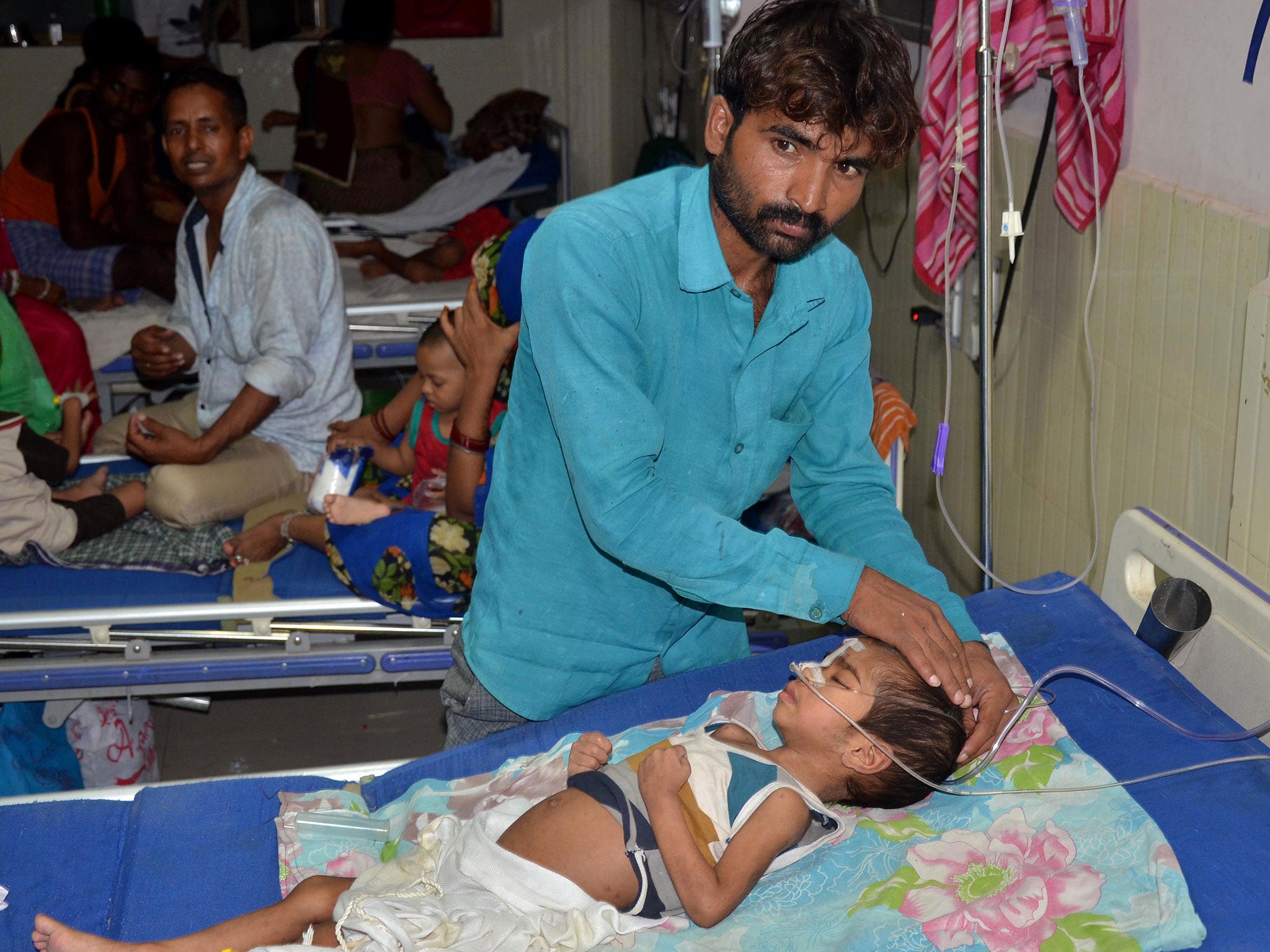Indian state suspends hospital chief after deaths of 60 children
Indian media have said the deaths were caused in part by oxygen shortages

Your support helps us to tell the story
From reproductive rights to climate change to Big Tech, The Independent is on the ground when the story is developing. Whether it's investigating the financials of Elon Musk's pro-Trump PAC or producing our latest documentary, 'The A Word', which shines a light on the American women fighting for reproductive rights, we know how important it is to parse out the facts from the messaging.
At such a critical moment in US history, we need reporters on the ground. Your donation allows us to keep sending journalists to speak to both sides of the story.
The Independent is trusted by Americans across the entire political spectrum. And unlike many other quality news outlets, we choose not to lock Americans out of our reporting and analysis with paywalls. We believe quality journalism should be available to everyone, paid for by those who can afford it.
Your support makes all the difference.The head of an Indian hospital where dozens of children died in recent days has been suspended, as officials traded blame over cash shortfalls that led to supplies of medical oxygen being cut.
The government of Uttar Pradesh state, run by India’s ruling Bharatiya Janata Party (BJP), suspended the head of the state-run Baba Raghav Das Medical College, Rajeev Misra, late on Saturday and ordered an investigation.
Indian media have said the deaths of 60 children, 34 infants among them, were caused in part by oxygen shortages after a private provider cut the supply over unpaid bills.
Hospital officials deny lack of oxygen caused the deaths, saying alternative supplies were found, and blamed many of the deaths instead on encephalitis and unspecified issues related to delivery of the infants.
On Sunday, Jagat Prakash Nadda, India’s health minister, visited the hospital in the town of Gorakhpur, 500 miles east of New Delhi, accompanied by the state’s chief minister, Yogi Adityanath. After the visit, the chief minister urged patience until the investigation was complete.
“We will know whether it was because of an oxygen shortage or due to a lack of proper treatment,” Mr Adityanath said. “Those found guilty will not be spared.” Mr Nadda said a team of doctors from New Delhi was working with the local authorities and the federal government was ready to send more assistance.
He said Prime Minister Narendra Modi was also monitoring the developments.
The issue of the unpaid bills for oxygen supply has become a flashpoint in relations between the hospital and the state government, after the suspended hospital chief on Saturday accused state officials of not answering his requests for money.
“I wrote at least three letters,” Mr Misra said on Saturday, adding that he had flagged the issue in video conference discussions. Mr Adityanath, who had visited the hospital on 9 August, said no issue of unpaid bills was brought to his attention and all requests for funds were met promptly.
Opposition parties have stepped up the pressure on the state government, demanding the resignations of Mr Adityanath and the state health minister.
Uttar Pradesh is India’s most populous and politically prized state. Gorakhpur, a town near the border with Nepal, is Mr Adityanath’s political base, which elected him to parliament five times before Mr Modi asked him to lead Uttar Pradesh, after a landslide BJP election victory in March.
A study of government data by non-profit body Brookings India showed the district has a 26 per cent shortage of primary health centres.
Encephalitis outbreaks kill hundreds in India every year, especially during the monsoon season.
The country’s expenditure on public health is about 1 per cent of GDP, among the world’s lowest. In recent years, Mr Modi’s government has increased health spending and vowed to make healthcare more affordable.
Reuters
Join our commenting forum
Join thought-provoking conversations, follow other Independent readers and see their replies
Comments